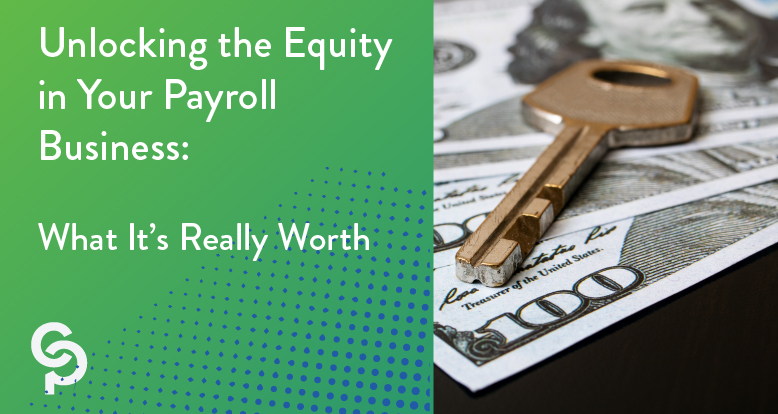Unlocking the Equity in Your Payroll Business: What It’s Really Worth

In the evolving landscape of payroll services, independent providers often overlook one critical asset: the equity embedded in their business. Unlike traditional service providers operating under larger franchises or corporate umbrellas, independent payroll professionals typically have more flexibility, control, and personalized relationships with clients. But with that independence comes the challenge — and opportunity — of unlocking real value from the business they’ve built.
Here’s a look at what your payroll business is truly worth, how to assess its value, and strategies to unlock its equity.
Understanding Your Business’s Equity
Equity represents the value of your business, or what you as the owner actually own after all liabilities are subtracted from the business’s total assets. For a payroll company, this includes:
- Recurring revenue. Steady, predictable income from monthly or biweekly services is a strong indicator of value.
- Client base. The number of clients, retention rates, contract terms, and industry niches you serve.
- Technology & processes. This includes proprietary tools, integrations, or workflows that increase operational efficiency.
- Brand & reputation. A trusted local presence, industry certifications, and positive testimonials can enhance value.
- Growth potential. Opportunities to upsell or cross-sell, for example, with HR or benefits services, along with untapped markets signal future value.
What’s Your Payroll Business Really Worth?
Valuing a payroll company requires a nuanced approach. Many buyers or investors will look at the following:
- Revenue multiples. Payroll businesses typically sell at 1x to 2.5x annual recurring revenue.
- Client retention & tenure. A loyal client base with average relationships north of five years can add to your business’s value.
- Service mix. Businesses offering payroll-only services may be valued lower than those bundling HR, benefits, or compliance support.
- Owner dependence. If you personally manage every client relationship, it may reduce valuation. A business that runs with minimal owner involvement is more scalable and transferable.
How to Unlock Your Business’s Equity
Once you’ve built a valuable business, how do you tap into that value? Here are some ideas:
- Sell to a strategic buyer. Buyers may pay a premium to acquire your client base, technology stack, or local market footprint. Strategic deals can include earnouts or roll-ups.
- Partner or merge. Joining forces with a complementary provider can unlock scale, create cross-sell opportunities, and boost enterprise value before a future exit.
- Accept private equity or investor capital. If you’re not ready to completely sell, consider a partial equity sale to a private investor.
- Internal succession. Train an employee or family member to gradually take over the business. This lets you extract some of your business’s value while maintaining control for the time being.
As an independent payroll provider, your business is more than just your client list or your annual revenue. It’s a system, a brand, as well as a financial asset. Whether you’re planning to exit the business in five years or want to expand through acquisition, understanding and maximizing your equity is the first step toward building lasting wealth from your business.






